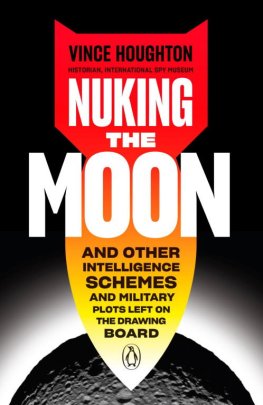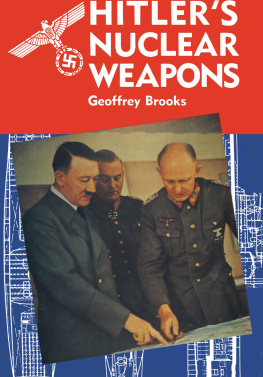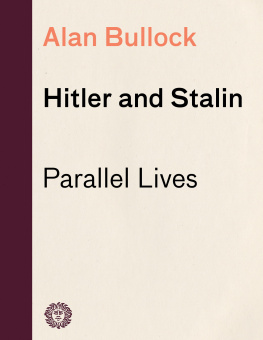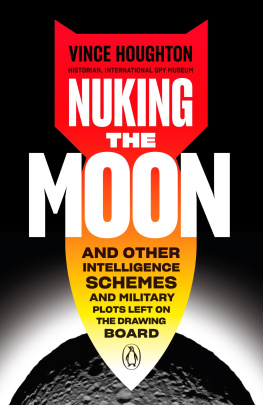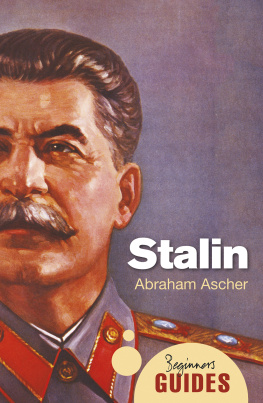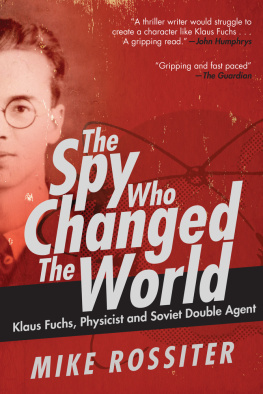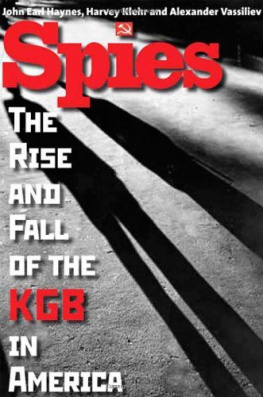The Nuclear Spies
Americas Atomic Intelligence Operation against Hitler and Stalin
Vince Houghton
Cornell University Press
Ithaca and London
For Jon and Rae
The United States has come to see that it is in a new kind of rivalry with the Soviet Uniona rivalry that may well turn, not on territorial or diplomatic gains, or even (in the narrow sense of the word) on military advantage. The crucial advantage in the issue of power is likely to be with the nation whose scientific program can produce the next revolutionary advance in military tactics, following those already made by radar, jet propulsion, and nuclear fission.
Don K. Price, Government and Science , 1954
For the whole world was flaring then into a monstrous phase of destruction. Power after Power about the armed globe sought to anticipate attack by aggression. They went to war in a delirium of panic, in order to use their bombs first. China and Japan had assailed Russia and destroyed Moscow, the United States had attacked Japan, India was in anarchistic revolt with Delhi a pit of fire spouting death and flame; the redoubtable King of the Balkans was mobilising. It must have seemed plain at last to every one in those days that the world was slipping headlong to anarchy. By the spring of 1959 from nearly two hundred centres, and every week added to their number, roared the unquenchable crimson conflagrations of the atomic bombs, the flimsy fabric of the worlds credit had vanished, industry was completely disorganised and every city, every thickly populated area was starving or trembled on the verge of starvation. Most of the capital cities of the world were burning; millions of people had already perished, and over great areas government was at an end.
H. G. Wells, The World Set Free , 1914
Contents
Introduction
The Principal Uncertainty
The storyline is well known, but not necessarily well understood. In September 1949, the U.S. intelligence establishment was shocked to discover that the Soviet Union had detonated its first atomic bomb. Coming just four years after the United States had become the worlds first nuclear power, the Soviet atomic bomb was produced in half the time that U.S. intelligence had predicted. The consensus among the intelligence community, American scientists, the military, and the civilian political leadership had been that the earliest probable date for a Soviet atomic bomb was 1953. Somehow the Soviet Union had exceeded the expectations of U.S. national security experts by almost four years.
Compounding the confusion of U.S. leadership was the fact that, during the Second World War, U.S. intelligence had engaged in an effort against Nazi Germany that had correctly assessed the status of the German atomic bomb program. The German program had been given considerable attention by U.S. intelligence, yet despite the initial belief that the German atomic bomb project was significantly ahead of the progress of the United States Manhattan Project, in 1944 U.S. intelligence discovered that the Germans would not develop an atomic bomb in time to affect the outcome of the war.
Both of these efforts operated within the framework of an entirely new field of intelligence: scientific intelligence. For the first time in history a nations scientific resourcesthe abilities of its scientists, the state of its research institutions and laboratories, its scientific educational systembecame a key consideration in assessing a potential national security threat. Information concerning a nations technological capabilities had been a priority for U.S. intelligence organizations since the American Revolution. Yet scientific intelligence was a product of the Second World War and the developmentand strategic implicationsof the atomic bomb. The atomic bomb itself was a direct application of scientific theory to a weapon of war, the culmination of four decades of scientific research into the physics of the atom. Nuclear weapons, therefore, made intelligence about an enemy nations scientific abilities an integral part of strategic planning. It was no longer sufficient to know just the ramifications of an enemys deployed weapons systems or technological achievements. With the advent of a weapon of unprecedented destructive force, it became paramount to acquire information about an enemys scientists, research laboratories, universities, and overall scientific infrastructure in order to correctly assess the immenseness of dire strategic threat. Such information was indeed crucial to national survival.
Scientific intelligence also forced a change in thinking about intelligence collection and analysis. Other types of intelligence can base their collection and analysis efforts on tangible things: technological intelligence can look at an aircraft and calculate the air speed, payload, survivability; military intelligence can count tanks, troops, divisions; economic intelligence can determine industrial capability, monitor debt, calculate GDP. Yet scientific intelligence is primarily focused on future potential, on how the scientific abilities of a particular state might, at some point, threaten national security. In doing so, scientific intelligence makes general assessments of a nations scientific ability and presupposes that these findings are indicators of a potential strategic threat. In other words, assessments made about particular scientific research with strategic applicationssuch as the ability to develop nuclear weaponsare extrapolated from general assumptions made about the totality of a nations scientific abilities.
As a result, American scientists created an ad hoc organization for atomic intelligence, drawing on their scientific contacts in Europe and their scientific experience to learn and discern what they could about the German atomic bomb program. In the summer of 1943 the U.S. government authorized the Manhattan Projects director, Brig. Gen. Leslie Groves, to take complete control of all atomic intelligencerelated operations. This action was a response to the acute fear of German scientific ability, the ineffectiveness of American scientists in collecting any actionable intelligence on their own, and the recognition that there were no existing intelligence organizations that could carry out such a difficult task. In doing so, the government gave Groves unprecedented power to centralize and consolidate intelligence functions.
A little over a year later, the decision to give Groves that responsibility paid off. The Manhattan Engineer District (MEDthe formal name of the Manhattan Project) intelligence team discovered evidence that strongly indicated that the German atomic bomb program was significantly behind that of the United States, and thus it was highly unlikely that Germany would have an atomic bomb before the end of the war. The MED intelligence effort against the Germans was successful because it excelled at all three aspects of what is known as the intelligence cycle: collection, analysis, and dissemination. Collection is the acquisition of information from a variety of sources such as human intelligence, signals intelligence, and imagery intelligence. Analysis is taking the raw data acquired by the collection effort and discerning its military significance. This is done through the creation of intelligence estimates, which assess the capabilities and intentions of a prospective opponent. Finally, dissemination is presenting this analysis to policymakersand convincing them of its validity so that they can make use of it in the formation of national policies and strategies. A failure in any one aspect of the intelligence cycle means failure of the whole.
Leslie Grovess intelligence organization collected a wealth of information from a variety of sources. His analysis contingent was highly capable and quickly transformed the collected information into a conclusive argument. As a result, although the U.S. scientific, military, and political leadership had a deep-seated belief in the abilities of the German scientists, Grovess intelligence system was effective enough to convince the U.S. leadership that the German atomic program lagged behind that of the United States and that there would, as a consequence, be no German bomb.


